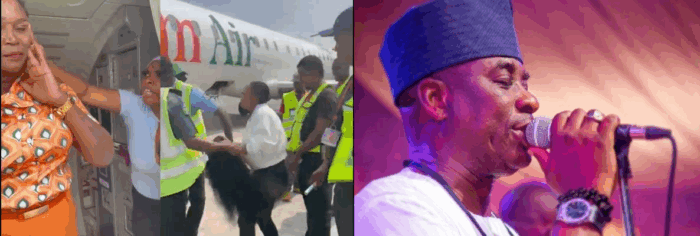In a challenging economy like ours, every naira matters. With mounting insecurity across roads and limited, unreliable rail services, air travel has become the only viable option for many Nigerians. Yet, instead of ease, the skies offer another layer of hardship.
Let’s be clear: this is not a partisan indictment of the current administration. The problems in our transportation and aviation sectors are the result of years—if not decades—of neglect, policy inconsistencies, and systemic decay. What we are witnessing today is simply the culmination of what we refused to fix.
Domestic airfares have soared astronomically. Tickets that once cost between ₦15,000 to ₦30,000 now go for several times that amount, forcing many to stretch beyond their means just to move within their own country. And unlike the past, these high prices now come with delayed flights, sudden cancellations, and near-zero accountability from operators. In the face of these frustrations, it’s little surprise that tensions at airports sometimes boil over.
What’s worse, airlines delay or cancel flights without explanation or consequence. Refunds are rarely processed automatically, even when airlines are suspended by regulators. Instead, passengers are made to jump through hoops and, in some cases, never receive a refund at all. Meanwhile, regulators often appear either overwhelmed or unwilling to enforce the rules. The result? A breakdown of trust and growing antagonism between operators and the flying public.
This growing hostility didn’t emerge overnight. It’s a product of frustration, inefficiency, and a regulatory environment that has failed to protect consumers. To be clear, this is not a justification for unruly behavior at airports. But we must acknowledge that had proactive steps been taken, and had regulators done their jobs effectively, much of this would have been avoided.
There’s no denying the difficult terrain airlines operate in—rising fuel costs, foreign exchange pressures, and infrastructural deficiencies all play a role. The Honourable Minister of Aviation and Aerospace Development, Mr. Festus Keyamo, SAN, deserves credit for his recent efforts to stabilize and reform the sector. But more must be done.
Business must remain business. We cannot continue to operate in a system where rules are mere suggestions. Airlines must be held accountable under the laws of the land. Nigeria must move beyond the practice of offering aggrieved passengers kulikuli, biscuits, and bottled water when flights are delayed or cancelled. Real compensation—not token gestures—is what will begin to restore faith in the system.
If we want a safer, more reliable aviation sector that serves both passengers and operators, we must enforce the rules already in place. Regulatory agencies must rise to their mandate, and airlines must be compelled to treat Nigerians with the dignity and respect they deserve. Similarly, unruly behavior by anyone irrespective of their social, political or economic exposure must not be condoned.
Seun Elere
Social Inclusion Advocate
Peace Advocate and Public Affairs Analyst
























